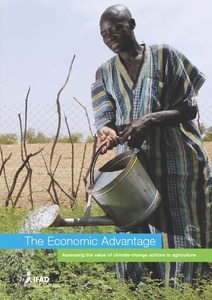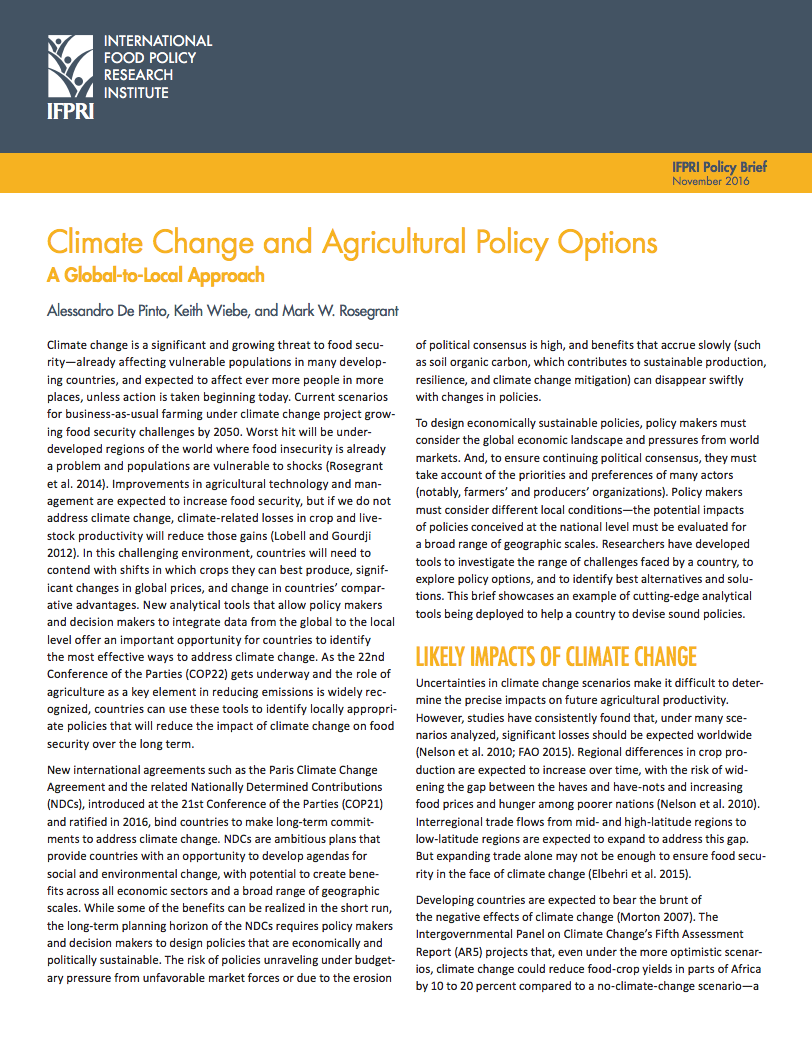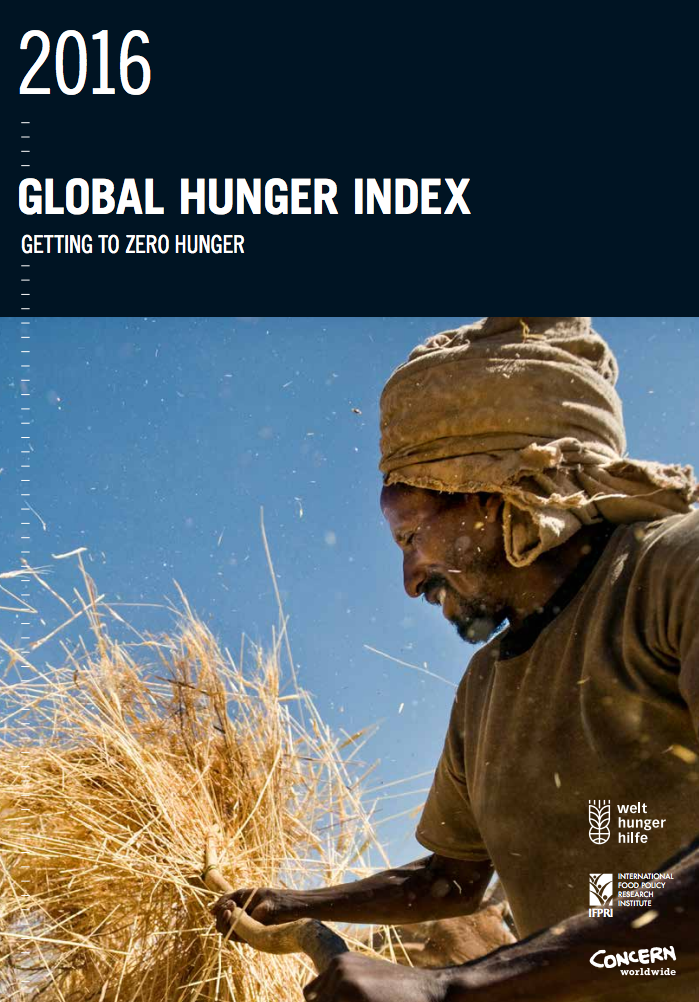Focal point
Location
About IFPRI
The International Food Policy Research Institute (IFPRI) provides research-based policy solutions to sustainably reduce poverty and end hunger and malnutrition in developing countries. Established in 1975, IFPRI currently has more than 500 employees working in over 50 countries. It is a research center of theCGIAR Consortium, a worldwide partnership engaged in agricultural research for development.
Vision and Mission
IFPRI’s vision is a world free of hunger and malnutrition. Its mission is to provide research-based policy solutions that sustainably reduce poverty and end hunger and malnutrition.
What We Do
Research at IFPRI focuses on six strategic areas:
- Ensuring Sustainable Food Production: IFPRI’s research analyzes options for policies, institutions, innovations, and technologies that can advance sustainable food production in a context of resource scarcity, threats to biodiversity, and climate change. READ MORE
- Promoting Healthy Food Systems: IFPRI examines how to improve diet quality and nutrition for the poor, focusing particularly on women and children, and works to create synergies among the three vital components of the food system: agriculture, health, and nutrition. READ MORE
- Improving Markets and Trade: IFPRI’s research focuses on strengthening markets and correcting market failures to enhance the benefits from market participation for small-scale farmers. READ MORE
- Transforming Agriculture: The aim of IFPRI’s research in this area is to improve development strategies to ensure broad-based rural growth and to accelerate the transformation from low-income, rural, agriculture-based economies to high-income, more urbanized, and industrial service-based ones. READ MORE
- Building Resilience: IFPRI’s research explores the causes and impacts of environmental, political, and economic shocks that can affect food security, nutrition, health, and well-being and evaluates interventions designed to enhance resilience at various levels. READ MORE
- Strengthening Institutions and Governance: IFPRI’s research on institutions centers on collective action in management of natural resources and farmer organizations. Its governance-focused research examines the political economy of agricultural policymaking, the degree of state capacity and political will required for achieving economic transformation, and the impacts of different governance arrangements.
Research on gender cuts across all six areas, because understanding the relationships between women and men can illuminate the pathway to sustainable and inclusive economic development.
IFPRI also leads two CGIAR Research Programs (CRPs): Policies, Institutions, and Markets (PIM) andAgriculture for Nutrition and Health (A4NH).
Beyond research, IFPRI’s work includes partnerships, communications, and capacity strengthening. The Institute collaborates with development implementers, public institutions, the private sector, farmers’ organizations, and other partners around the world.
Resources
Displaying 141 - 145 of 1521The Economic Advantage: Assessing the value of climate-change actions in agriculture
This report is aimed at readers who seek to build economic evidence in support of the inclusion of actions on agriculture in climate change plans and programmes, particularly at the national level under the umbrella of nationally determined contributions (NDCs) to the December 2015 Paris Agreement, which aims to restrict a rise in global temperatures and manage risks.
Climate change and agricultural policy options: A global-to-local approach
Climate change is a significant and growing threat to food security—already affecting vulnerable populations in many developing countries, and expected to affect ever more people in more places, unless action is taken beginning today. Current scenarios for business-as-usual farming under climate change project growing food security challenges by 2050. Worst hit will be underdeveloped regions of the world where food insecurity is already a problem and populations are vulnerable to shocks (Rosegrant et al. 2014).
2016 Global hunger index: Getting to zero hunger
The developing world has made substantial progress in reducing hunger since 2000. The 2016 Global Hunger Index (GHI) shows that the level of hunger in developing countries as a group has fallen by 29 percent. Yet this progress has been uneven, and great disparities in hunger continue to exist at the regional, national, and subnational levels.
Perceived Land Tenure Security and Rural Transformation: Empirical Evidence from Ghana
Using household- and plot-level data from Ghana, analyzes the main factors associated with farmers’ perceived tenure security. Individually, farmers perceive greater tenure security on plots acquired via inheritance than on land allocated by traditional authorities. But collectively, perceived tenure security lessens in communities with more active land markets and economic vibrancy. Migrant households and women in polygamous households feel less secure about their tenure, while farmers with political connections are more confident about their tenure security.
Crop residue allocation to livestock feed, soil improvement and other uses along a productivity gradient in Eastern Africa
Crop residues are a key livelihood resource in smallholder mixed crop-livestock systems in Sub-Saharan Africa. With expansion of arable land and resultant decline in grazing resources, crop residues are becoming an increasingly important component of livestock feeds. This demand for livestock feeds has implications for the long-term sustainability of such systems since failure to return biomass to soils has implications for soil quality and the capacity of soils to support long-term productivity.







